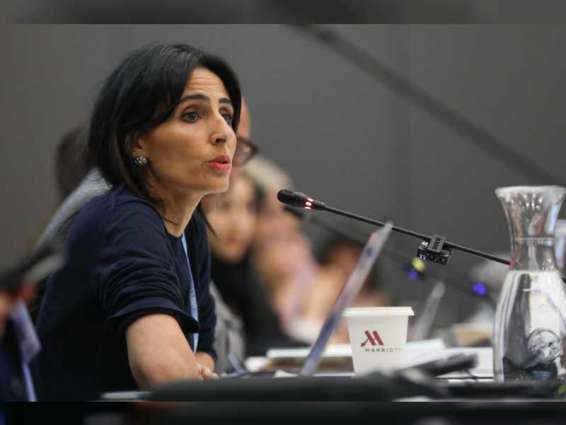BELEM, Brazil, (Pakistan Point News - 10th Aug, 2023) Razan Al Mubarak, UN Climate Change High-Level Champion for COP28, was part of the COP28 Presidency delegation to Belem, Brazil where she engaged in bilateral meetings with various heads of state, ministers, governors, and leaders of Indigenous communities.
Held in the city of Belem in Brazil, the Amazon Cooperation Treaty Organisation (ACTO) Summit which started yesterday, is expected to yield an ambitious policy on protecting the world’s largest rainforest as it reaches a point of no return. The summit gathers heads of state of the eight ACTO signatories: Bolivia, Brazil, Colombia, Ecuador, Peru, Venezuela, Guyana, and Suriname as well as top-level officials of several other invited countries.
The Amazon is a vital biodiversity hotspot and a carbon sink storing huge amounts of greenhouse gases that would otherwise further contribute to climate change. Yet it has been under increasing pressure – from agriculture, Illegal mining, and oil drilling. The cumulative effect of these adverse impacts and others has been so grave that last year scientists warned of possible large-scale tree die-offs which could turn the rainforest into a dry savannah.
Deforestation is also destroying the livelihoods and the way of life of the Amazon’s Indigenous communities. On Wednesday, Al Mubarak met with Indigenous leaders, inviting them to bring their agendas to COP28, the annual UN climate change summit taking place in Dubai, UAE in November.
“Indigenous peoples have traditionally been overlooked in climate action campaigns,” said Al Mubarak, adding that including them in the dialogue on how to limit global warming to 1.5C is vital. “Those who live among the forests are the best stewards of the forests.”
In the Amazon basin, almost half of the remaining intact forests are in indigenous territories, said Al Mubarak who is also the President of the International Union for Conservation of Nature (IUCN).
“Today, on the International Day of The World’s Indigenous Peoples, we must also recognise their historical leadership on nature preservation and climate.”
Indeed, Indigenous and tribal territories in Latin America have lower average deforestation rates than other forests. Many indigenous territories prevent deforestation just as well or in some cases even better than protected areas. For example, between 2006 and 2011, the indigenous territories in the Peruvian Amazon reduced deforestation. They achieved twice the reduction of protected areas with similar ecological conditions and accessibility.
While in Brazil, Al Mubarak also met with Alessandra Korap, a Brazilian environment activist and Indigenous leader, to hear more about their experiences and priorities.
“I was grateful for the opportunity to hear directly from local leaders on how to best protect the Amazon and how to foster inclusion and bring their perspectives into the COP28 priorities,” said Al Mubarak, whose own proposals include, among other items, encouraging financial institutions and businesses to shift away from nature-depleting activities and providing indigenous communities with access to formal financial systems.




